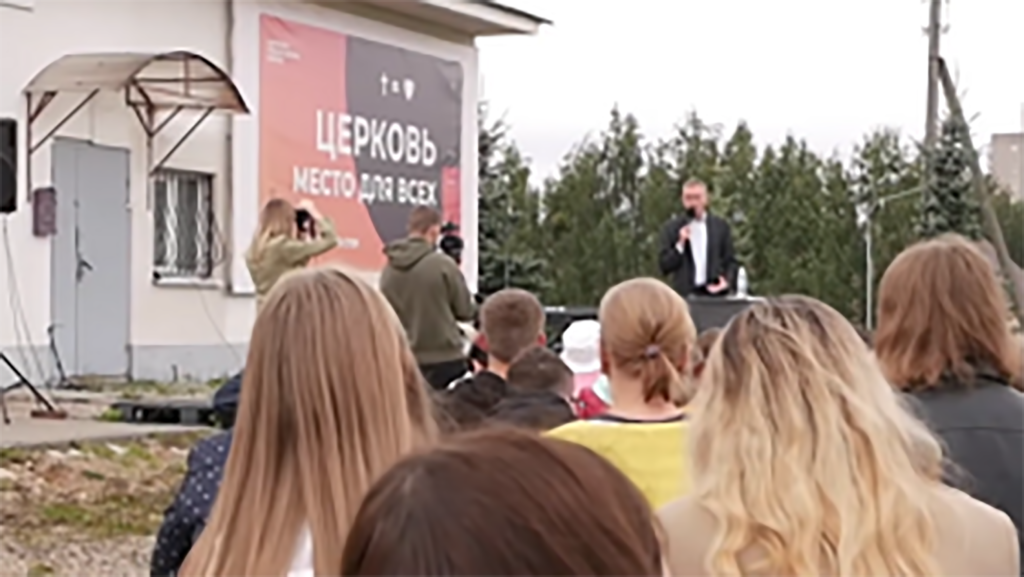In a May 13 podcast, TAB Media Editor-in-Chief Jennifer Rash tackled a controversial subject that many in the Church and in broader evangelicalism have considered for years.
Titled, “Should the Gender of the Senior Pastor be Essential to the Faith?” Rash moderated the discussion with several key leaders from Beeson Divinity School to get a biblical perspective of gender roles in the pastorate.
The panel from Beeson, located at Samford University, Birmingham, included Doug Sweeney, dean and professor of divinity; Timothy George, distinguished professor of divinity and founding dean; and Kristen Padilla, manager of marketing and communications and director of the Women in Ministry Initiative.
Rash opened the podcast by asking whether the gender of the pastor is essential to the faith. Sweeney shared his thoughts on whether that is a “top tier” or “first order” issue, explaining that a first order issue is an essential doctrine of the faith that supports an articulation of the gospel.
“There might be some disagreement about gender issues in the church,” Sweeney said, adding “they’re important, but they’re probably not first order doctrines.”
Denominational heritage
George jumped in to say he believes the topic is an issue of denominational heritage and differences.
“Methodists, Presbyterians, Baptists, Congregationalists, Lutherans – lots of these denominations will have different ways of approaching that issue,” he said.
When asked by Rash about the perspectives represented at Beeson, Sweeney said most are “complementarian” but the school is always striving for unity, even in differences.
Rash, to provide clarity, asked Padilla to describe the differences between complementarianism and egalitarianism.
“Within complementarianism and egalitarianism, there is a spectrum that’s defined in many ways,” Padilla said. “Typically, I would say a complementarian would not believe that a woman can be ordained or be in a position of authority over a man. Egalitarianism by and large would allow for a woman to be ordained to preach, to serve at the table in the same ways that a man would.”
Padilla also emphasized the importance of being able to work with others of different denominations regardless of beliefs surrounding complementarianism and egalitarianism, especially in missions work around the world.
“We really need to join hands in ministry to get the gospel into these places,” she said.
Rash, recognizing the topic is not new to Christianity, asked the panel how they see those with differences coming together in unity.
“So how do we get along?” she asked.
Struggling ‘lovingly’ with Scripture
Sweeney brought up a controversial verse in 1 Corinthians 11, warning against women covering their heads when they pray and prophesy, as an example of a potentially divisive issue.
“We are trying to struggle lovingly, faithfully with our Bibles open, prayerfully to figure out how to interpret, how to apply, what the Lord would have for us today with respect to these passages,” he said.
George added, “The debate we’re having now in a way is related to the fact that we believe the Bible is the Word of God and we ought to follow the scriptures. “
He gave two main viewpoints that could be used when understanding what Scripture says. The first, according to George, is the “exegetical argument.”
“What does the Bible really teach, what does it say?” George explained. “We want to be under the mandate of holy scriptures.”
The second, he said, is the “sacramental argument.”
“This sees ordination as a sacrament, one of the seven sacraments according to the Roman Catholic Church, and therefore we are to imitate in a way and even reduplicate the pattern that we find in Jesus,” George said. “Jesus had no female apostles according to the New Testament.”
The conversation turned to a “reformed” confession of faith from 1820 as George talked about changes over the years. He quoted the confession that calls for “forbearance, love, fellowship, understanding and forgiveness in the Body of Christ.”
‘Christian demeanor’
Rash, in winding up the discussion, asked for advice on how the average Christian should handle the debate in a focused way.
“We need to approach differences in a Christian demeanor,” George said, referencing James 1:5. “Seek wisdom from above that we don’t have ourselves. It should be in the covenanted community of the Body of Christ.”
Padilla added, “Humility is needed. A love for neighbor. The person we disagree with is made in the image of God.”
Sweeney concluded: “Within denominational differences, when it comes to peacemaking, let’s spend proportionately more of our time encouraging our female members to use their gifts and passions within the boundaries that we agree upon, and proportionately less time telling them what they cannot do.”
Watch the podcast below.






Share with others: